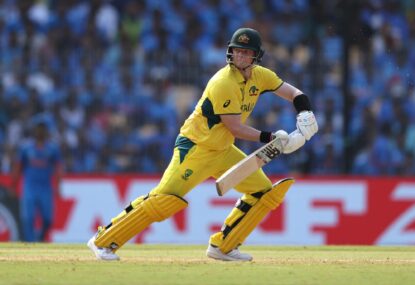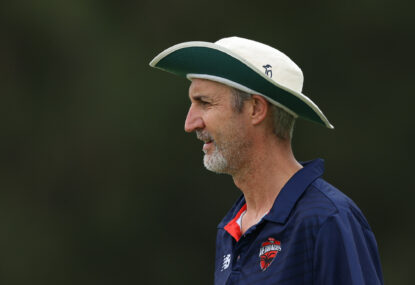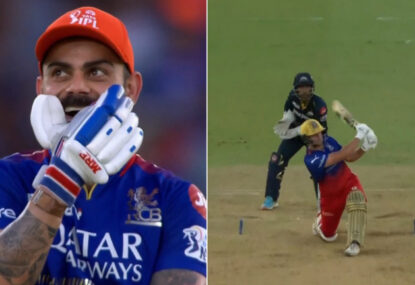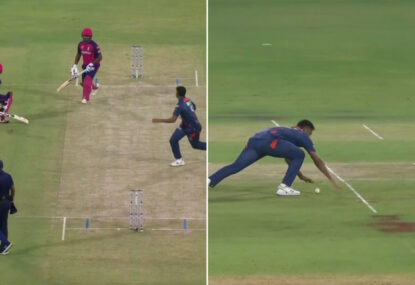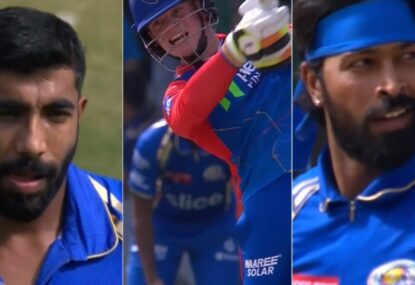Just this week, I published an article on The Roar about defiance.
I wrote about being outplayed but not defeated. I advocated that Test cricket is the only sport which truly rewards dogged, clenched-teeth, determined defiance in the face of a lost cause.
And then, with remarkable serendipity, I saw that very brand of defiance played out in Dubai.
In March, my faith in Australian Cricket was put to the test. The sandpaper wounds are still raw.
But today, I have never been more proud of an Australian cricket team.
Throughout my cricketing life, I’ve exhibited signs of clinically insane optimism. Australia might be nine down in the last innings, with 223 runs to win, and I’d still be dreaming of a record-breaking last wicket stand to pull-off a historic victory; fabled forevermore in interpretive dance and folkloric verse.
And it was no different on Wednesday when Usman Khawaja and Aaron Finch strode to the wicket. I even calculated the scoring-rate required to win. I knew it would be a record, but that didn’t daunt me.
And throughout the opening stand, my wildly audacious dreams crystalised into burgeoning truth; the Aussies were not too far behind the required scoring rate.
But then three wickets fell for zero runs – with still over an hour to stumps on the fourth day – and even my boyish optimism took a cricket stump through the heart. There was a harsh reality to be faced.
Yet, Khawaja kept pivoting onto his back foot and prodding the spinning ball away, in between elegant cover drives and buccaneering square-cuts. And, after a faltering start – endangering the faint-hearted – Travis Head began batting with a confidence and fluency which gave those faint of heart the pacemaker they needed.
Suddenly it was stumps and Australia still had seven wickets in the bank. Maybe, just maybe…
The next day, I followed the drama on-line during my last hours at work and on the train commute home. Fifteen minutes passed, then half-an-hour, then the full hour and onwards towards the luncheon adjournment; and still there was a “3” in wickets column whenever I anxiously refreshed my mobile phone screen.
This was becoming real. Two-and-a-half sessions behind us. Just two to go. And more than half the team yet to bat.
An epic, defiant, history-making draw now seemed within grasp, but maybe just out of reach; like a batsman sprinting down the pitch, bat outstretched, elongated arms and legs to the breaking point, hoping he would make it home before the fieldsman threw down the wickets.
But I was still dividing runs to win by minimum overs to be bowled and dreaming about a late evening run chase. Why not? Most records seem impossible, right up to the moment when they are set.
But then two wickets fall; Head followed by Marnus Labuschagne.
Half the day to bat out. Half the Australian wickets still in hand…
Now I am in front of the TV, transfixed by every delivery, startled by every high-pitched squeal of appeal, heart-stopped by every last nano-second adjustment of the bat to tame the searching ball and relieved by every push through mid-wicket or drive down the ground.
The moments between deliveries are a chance to catch my breath and slow my heart rate. Yet I hold my breath, once more, as the bowler enters his delivery stride.
This is what cricket tragics live for. Banter appears to be at a minimum. There’s no hint of any sledging. Out on the field, there is a timeless battle between bat and ball. And every ball counts.
The Tea interval comes and goes and Khawaja and Tim Paine are still fighting. Surely, now, the pendulum of cricketing fortune has swung and a draw is the most likely outcome. I am beginning to truly believe. But, my optimistic outlook notwithstanding, I know that things can fall apart quickly. I’ve seen it too often before.
The minutes pass and the last drinks break approaches. The brave Aussies are still five wickets down. The last hour begins and suddenly the Pakistanis are jubilant. They have Khawaja – the defiant hero of Dubai – leg before wicket. Moments later Mitchell Starc is gone and then Peter Siddle.
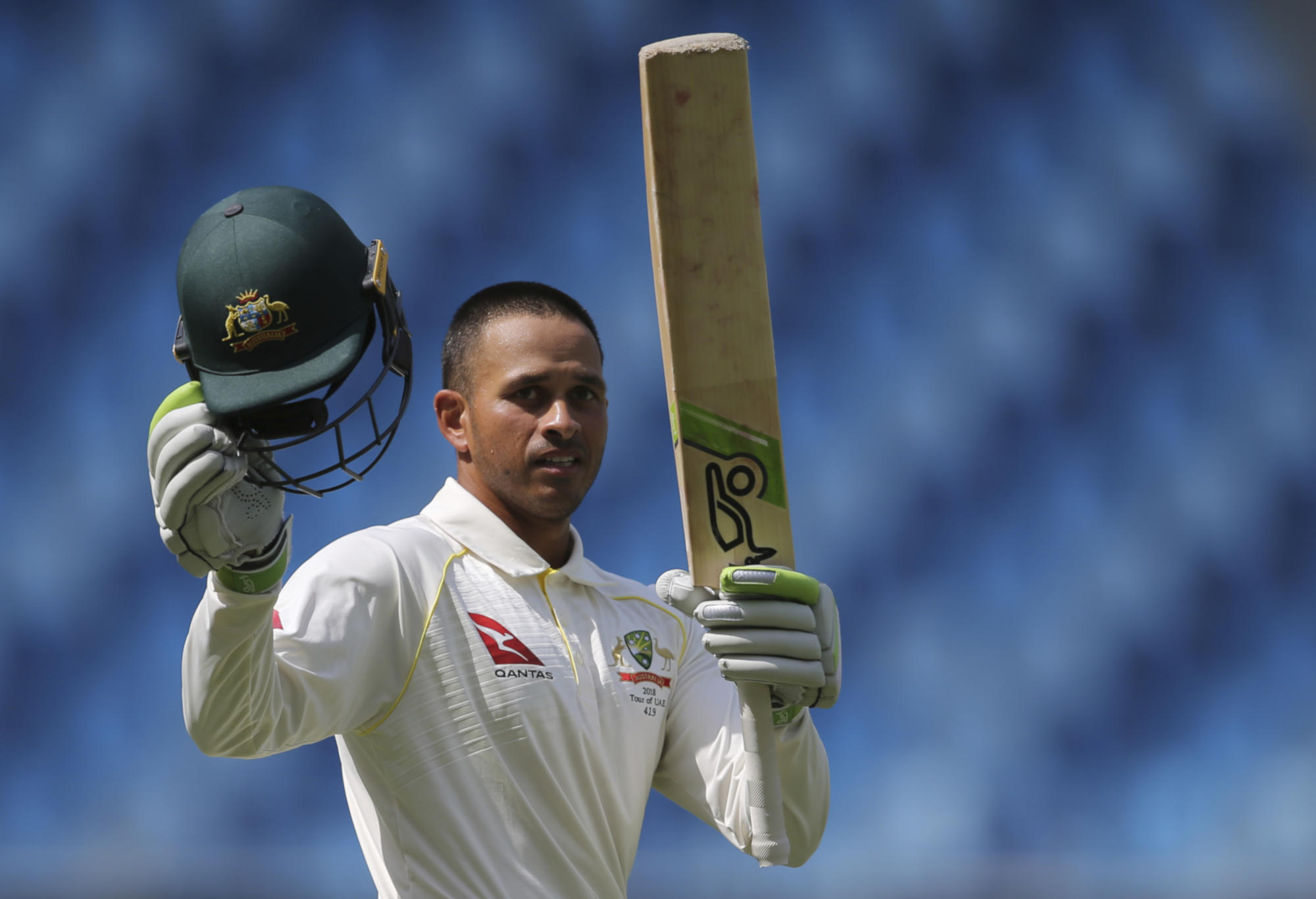
(AP Photo/Kamran Jebreili)
Twelve overs to bat and two wickets to hold. Only now do I give up on the win.
But the forty-five minutes which follow are torture. Momentum is now with Pakistan. Fielders lurk in the shadows, menacing around the bat, ready to grab any half-chance. Every fiercely spinning ball harbours a sinister malevolence which Paine and Nathan Lyon must repel.
The sight of Jon Holland in the dug-out does little to calm my frayed and febrile nerves. He looks so anxious that he may have difficulty standing up, let alone manipulating his bat to make safe contact, perchance, with a spitefully top-spinning cricket ball.
Five overs to go. Then three. Now it’s the last over of the day.
The captain is courageous. Nathan is lion-hearted.
With each ball safely batted away, history is within reach. And then we are there. Tim Paine hits the second last ball with such bloody-minded, tenacious determination that there was never any chance of it taking his wicket. With one ball to go and two wickets to take, a draw is declared.
Test cricket is the only sport which allows an outplayed team to walk from the field as (metaphorical) victors; alive to fight another battle on another day.
That this Australian team – born out of scandal and absent it’s two most accomplished batsman – achieved such an unlikely triumph will ensure the Battle of Dubai will live forever in Test Cricket history.
As will Usman Khawaja’s epic innings of defiance and the heroics of Finch, Head, Paine and Lyon.
For me – and, I assume, many other aficionados – this drawn Test carries with it extra profound satisfaction because it was achieved by an underrated group of players who proved you can still deliver results whilst adhering to the Sprit of Cricket.
I believe, in my heart, that this is a new dawn. But, then again, I am an optimist.






























































































